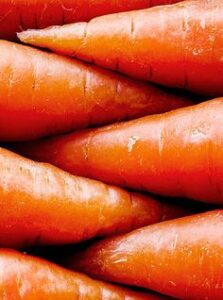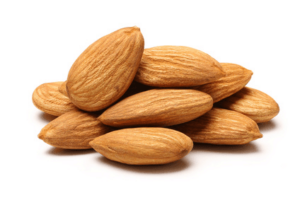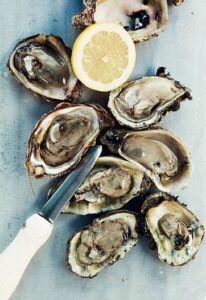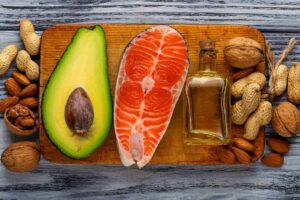Cosmetics and skin care products are always thought to be very beneficial in treating skin conditions like, wrinkles, dry or oily skin, acne, inflammation etc. Though, treating the skin with topical cosmetics does very little to address the root cause of the blemishes.
The skin is one of the main organs that gets rid of toxins from the body, which is why the skin is a great indicator of what’s going on in your body. Blemishes and acne, for instance, can indicate that there’s a lot of inflammation going on in your body. The first step in treating skin conditions is therefore: nourish and heal your body with good nutrition. A few vitamins and minerals, in particular, are great for healthy and flawless looking skin, which will be discussed in this article.
Vitamin A

Your parents might have told you from an early age on, that you should eat carrots to maintain a clear sight. That’s absolutely true! But carrots, and other vitamin A rich foods, also support reparation and maintenance of the skin. A diet low in vitamin A causes dry and flaky skin and delayed wound healing. Foods such as, beef liver, sweet potato, carrots, kale, spinach, squash, romaine lettuce, (dried) apricots, cantaloupe melon, capsicum and tuna, will provide you with vitamin A. Be careful with supplements and overeating of liver, since high amounts of Vitamin A can be harmful to the body.
Vitamin C

Vitamin C is probably the most popular nutrients of them all. It supports our immune system, especially during cold winter months, and it is an essential nutrient in skin health. When exposed to too much sunlight or pollution your body will be exposed to free radical damage. Vitamin C is THE nutrient to reduce the free radical damage and consequently delaying signs of premature aging. This amazing nutrient is also involved in the production of collagen and, in collaboration with vitamin E, protects us from overexposure to sunlight. Make sure you eat enough capsicum, kale, broccoli, kiwifruits, berries and citrus fruits for younger looking skin!
Vitamin D

Ever noticed that skin conditions lessen during summer or when you’re enjoying some sun at Costa Del Sol? This has a lot to do with skin exposure to sunlight (and potentially with lower stress levels). When skin is being exposed to sunlight, the sun’s ultraviolet B converts cholesterol into vitamin D3. This vitamin supports skin repair and skin-cell production. Very contradictory is that over exposure to sunlight can cause skin cancer, but then again vitamin D is important in the prevention of cancer. As using sunblock reduces vitamin D production, try to expose your unprotected skin to sunlight for a maximum of 20-30 minutes daily for optimal results.
Vitamin E

Vitamin E is a natural sunblock and a great help in the prevention of acne. Also, it is very popular due to its powerful antioxidant properties and is therefore mainly used in the body to deactivate free radicals. People with other skin conditions like psoriasis and aging (bye bye wrinkles!) benefit incredibly from vitamin E rich foods. These foods include: almonds, sunflower seeds, Swiss chard, spinach, hazelnuts, avocado, peanuts, shrimps, asparagus, sweet potato.
Zinc

Zinc is an absolutely amazing mineral, contributing to many different processes in the body. In regards to the skin, zinc supports wound healing, the production of oil and hormone balance. Since Hormonal imbalance could be an underlying cause of acne, zinc is a great mineral for treating this. Especially oysters are extremely high in zinc, as well as wheat germ, beef, lamb, pumpkin seeds, crab and lobster, chickpeas, cacao powder and cashews.
Essential fatty acids

There are two types of essential fatty acids that your body can’t produce itself, being omega-3 and omega-6, which is why these should be consumed through eating the right foods. Omega-3 and omega-6 fatty acids are essential in skin function and appearance. Omega-3 fats are highly inflammatory and protect our skin from damage caused by exposure to ultra violet radiation. Besides being highly inflammatory too, omega-6 is also important for repairing the skin barrier, resulting in the skin retaining moisture and staying flexible. Omega-3 fats can be found in flaxseeds, chia seeds, walnuts and fatty fish (mackerel, salmon, herring, sardines). Foods high in omega-6 are safflower oil, sunflower seeds or oil, walnuts, sesame seeds or oil, hemp seeds or o
il and primrose oil.
“If you are struggling with skin issues or you’d like some dietary and lifestyle recommendations contact us today to arrange an Epigenetics Wellbeing Assessment.”

